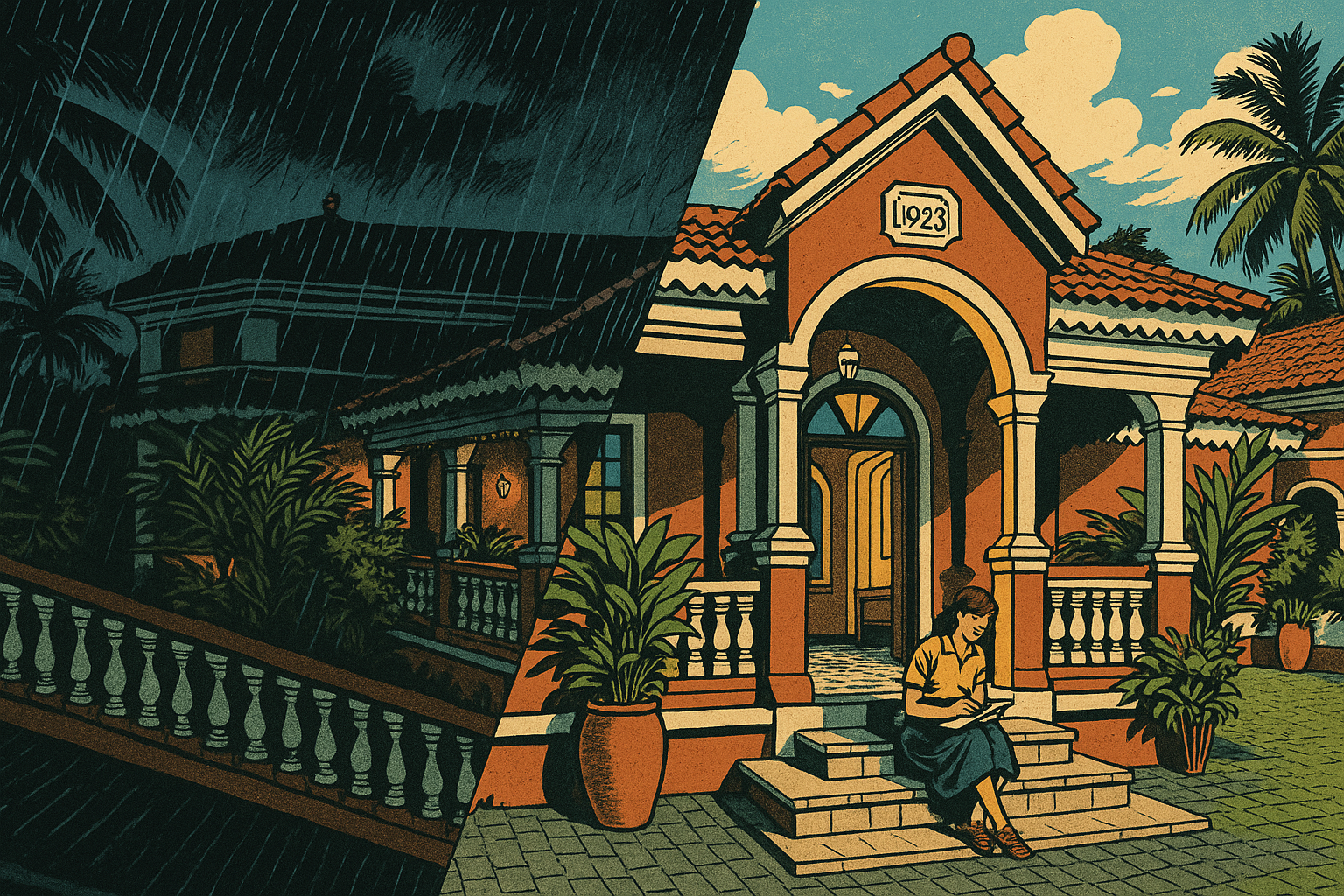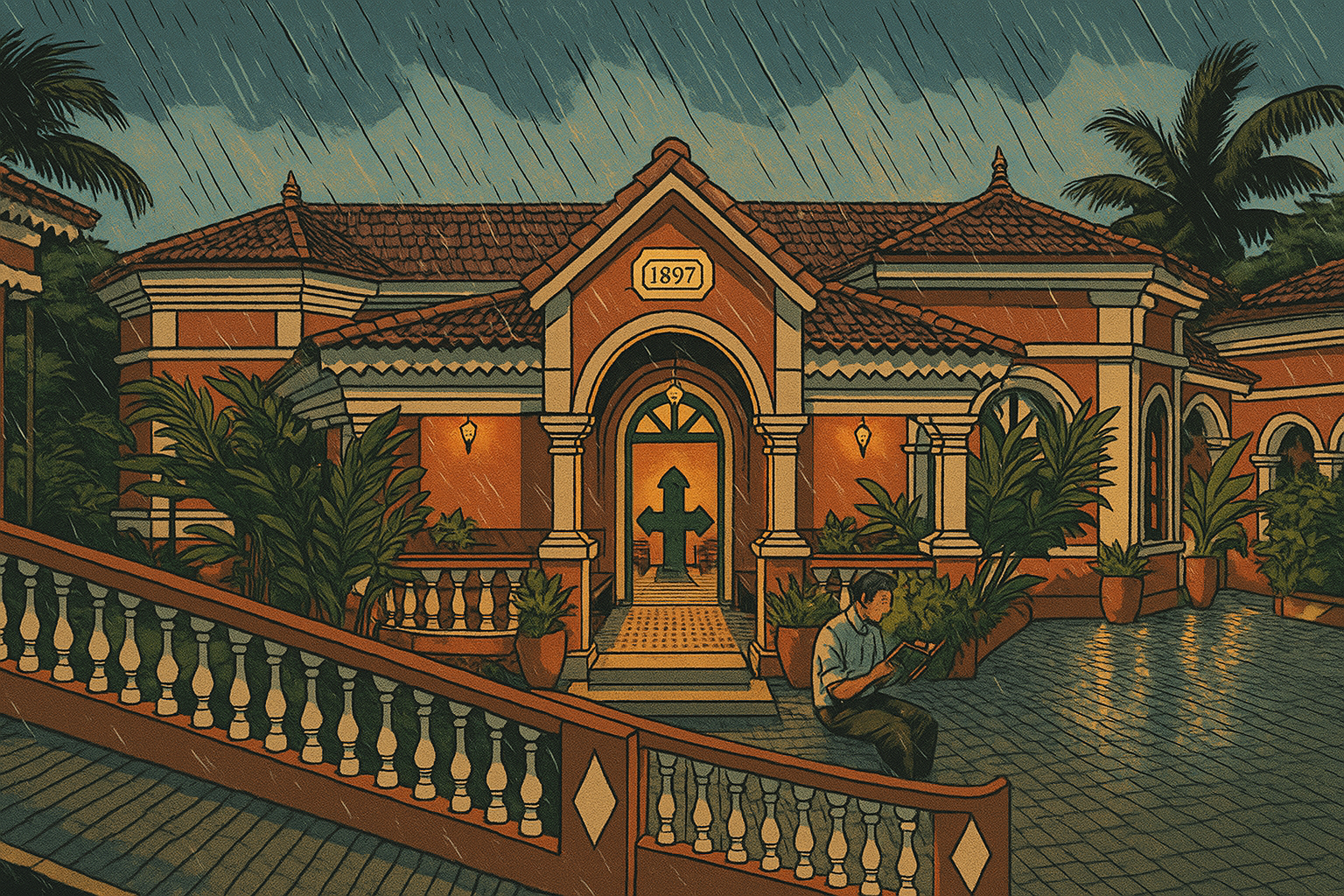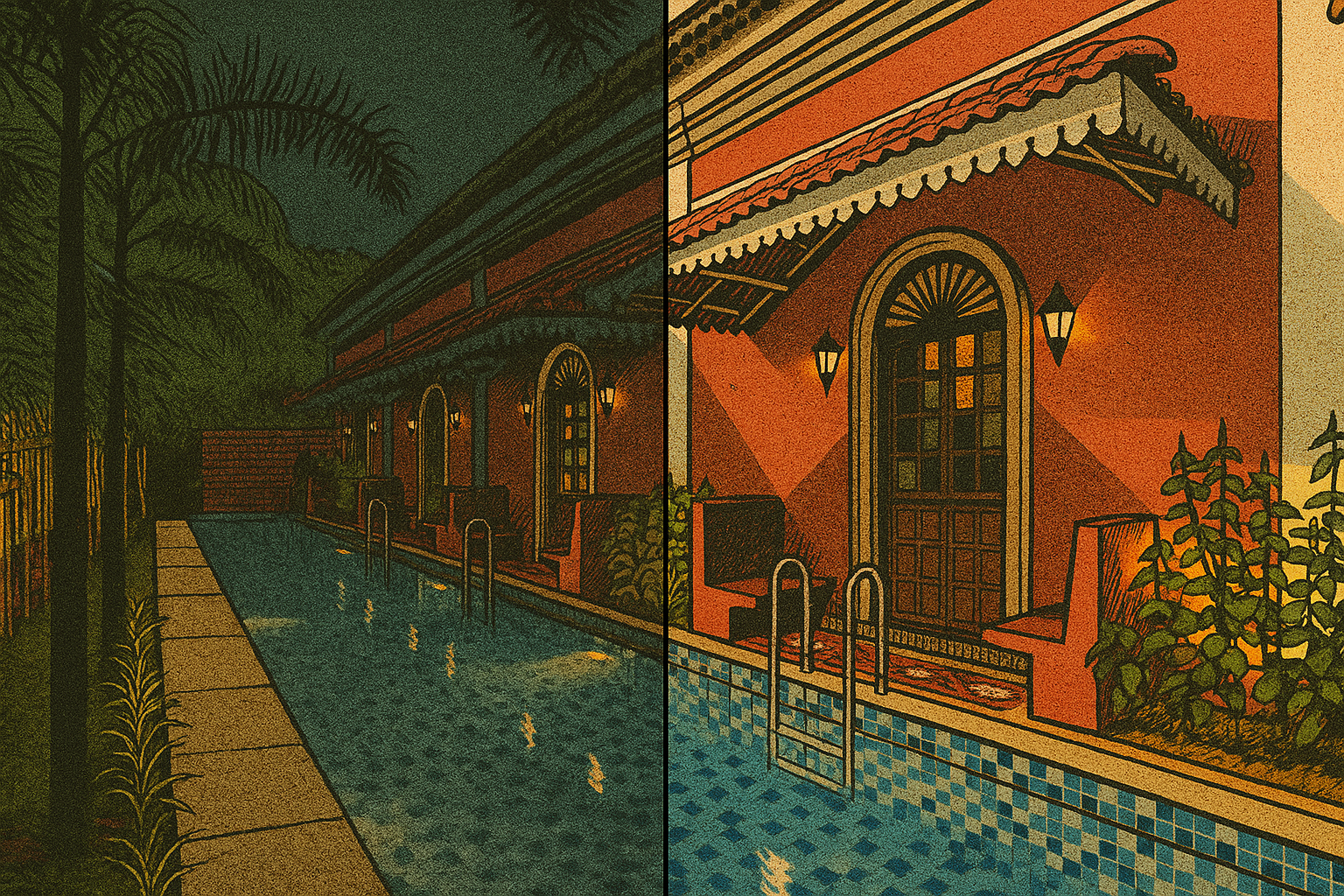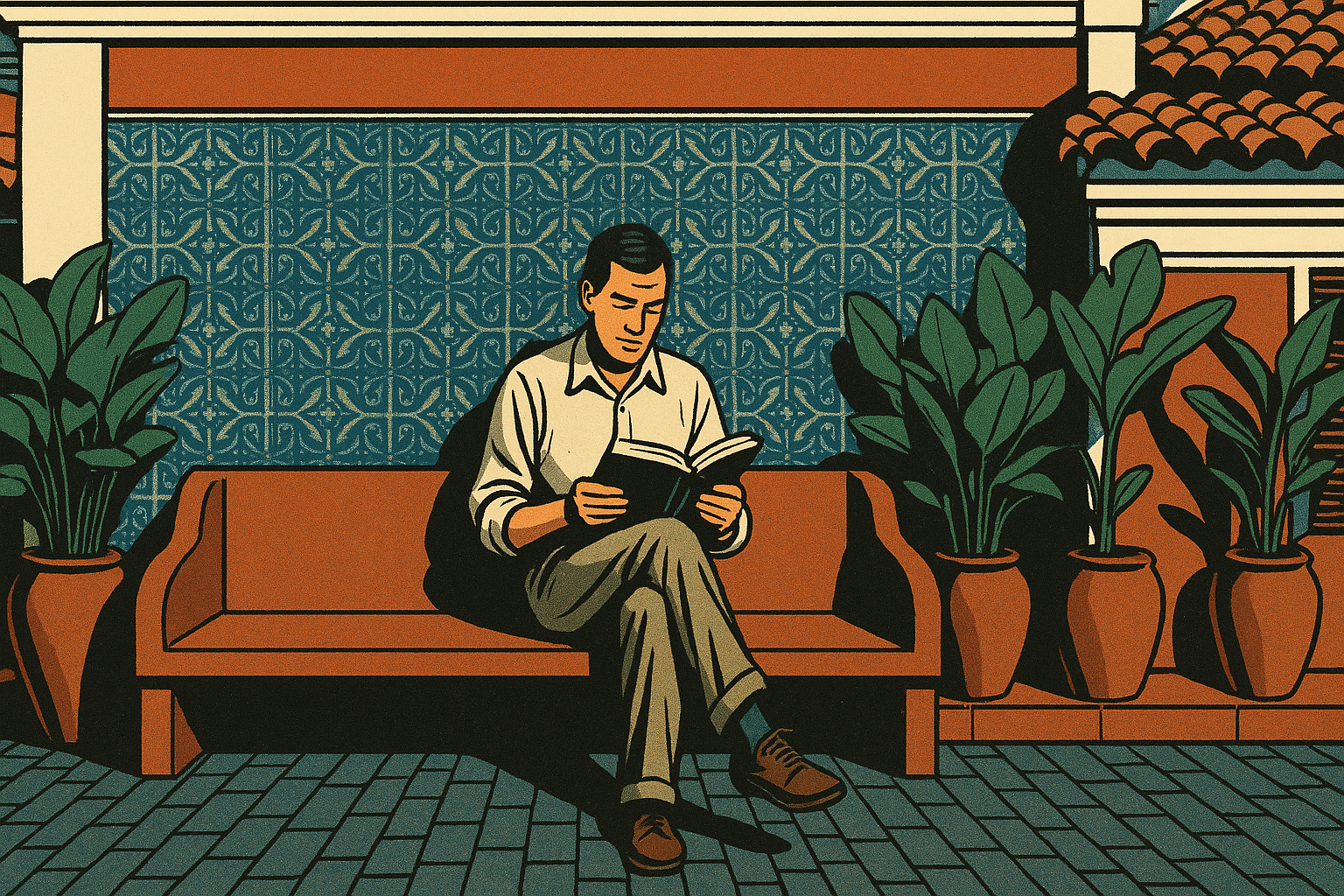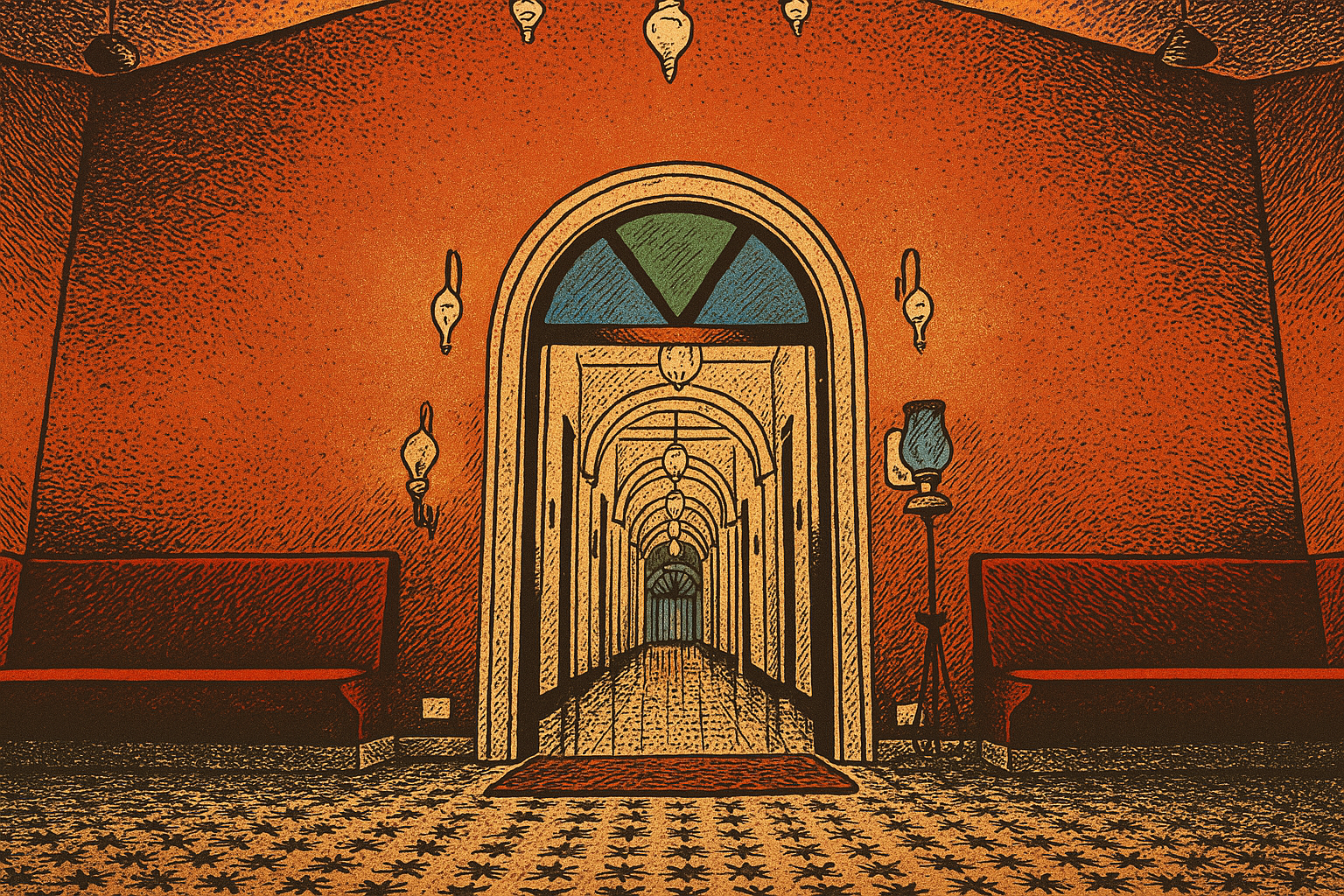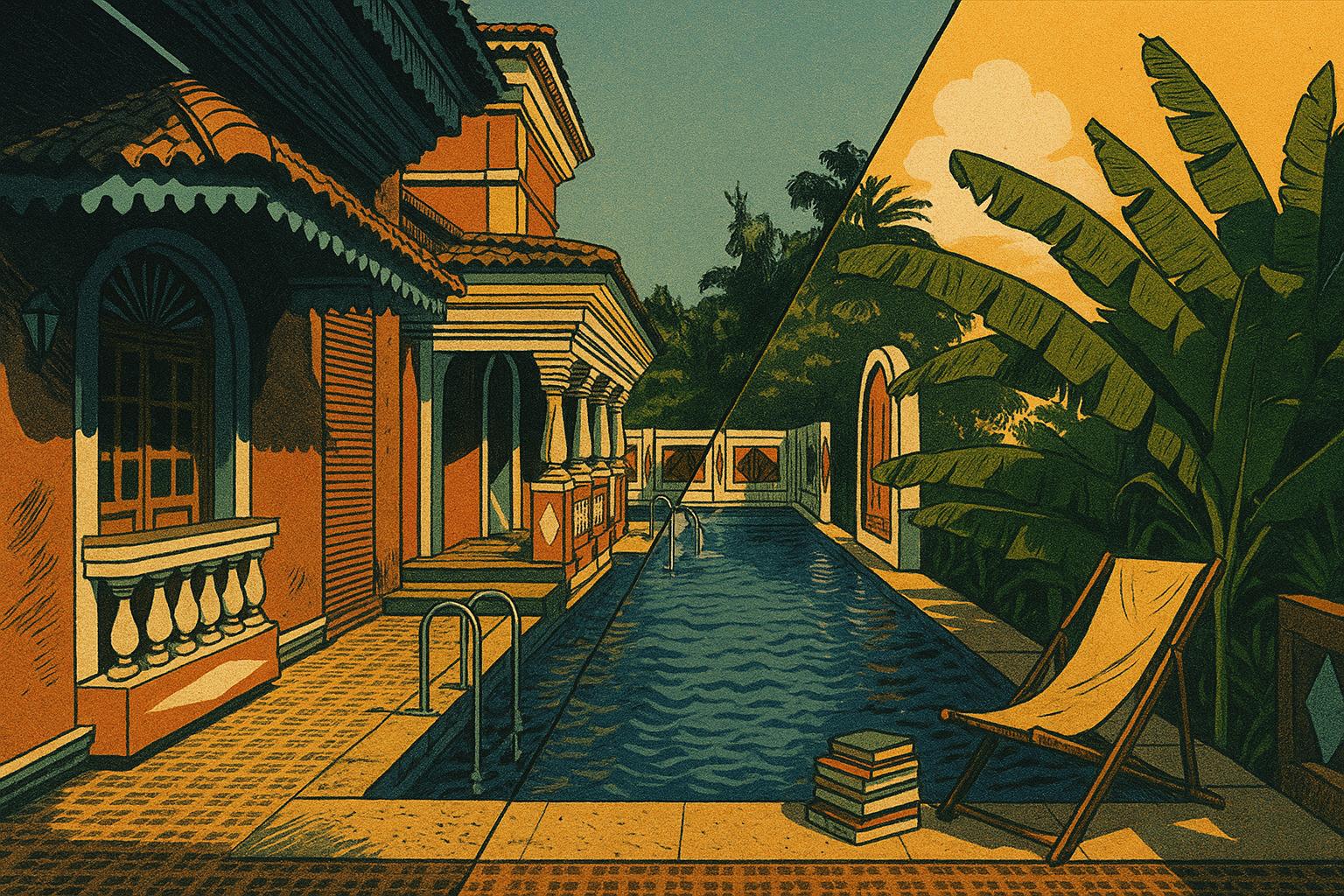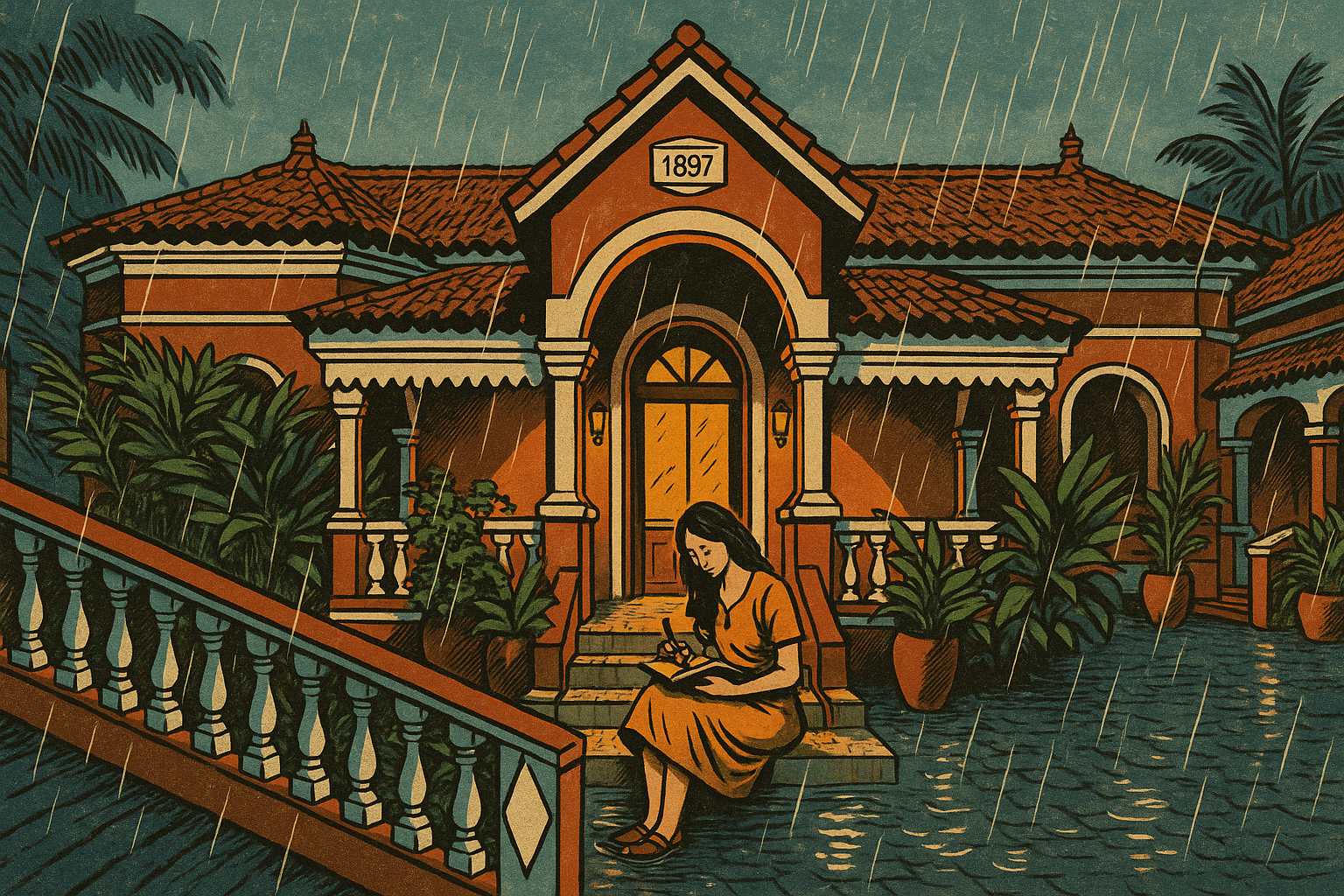You turn one corner off the beach road and everything changes.
Behind you: honking scooters, sunset-chasing crowds, the whole carnival of tourist Goa packed onto asphalt. The pilgrimage to the perfect Instagram sunset, bodies pressed together in that peculiar beach-town desperation for magic hour. Heat rising from the road despite the sudden unseasonal rain. The smell of exhaust mixed with frying fish. Not exactly what a Goa holiday is meant to be.
One lane over: mossy walls quieten the din, dim lights strung between old stone glow up the twilight, rain turning the packed earth to something close to silence. Squish and splash replaces tooting horns and drunken laughter.
This is the Goa nobody tells you about. The one that exists in the negative space between Google Maps pins. The one I won’t tell you about either! oops….
I’m not telling you exactly where this is. Not yet. Some places need to be saved from deliberate searches, not stumbled upon by accident or revealed by a careless writer. Ahem.
But if you’re a writer, a creator, someone who needs silence to think—keep reading.
Sharp Angles, Soft Paths
The lanes twist at sharp angles here. No grid, no logic—just centuries of people walking the paths that made sense. Paths carved by monsoons and market days, by Portuguese administrators and fishing families, by feet that knew where they were going long before anyone thought to pave it all.
My shoes collect wet mud with every step. The mist thickens around corners and rooflines, erasing the edges of things. The rain here doesn’t just fall—it transforms. It softens stone, darkens wood, turns the present tense into something that could be any century at all.
The walls grow moss in patterns that look intentional heritage style. Ferns sprout from cracks in the plaster, brushing your bare arms as you walk by. The lights barely work, strung up like a random afterthought, like electricity is still a novelty here, not quite welcome, not quite home.
The Villa Materializes
Then it appears.
A traditional Goan Portuguese villa rises out of the rain like a memory surfacing. Like it’s been waiting.
Crenellated rooftop first—those castle-wall notches cutting into grey sky, miniature battlements that speak to some old Portuguese dream of fortification. Then the courtyard, blue tiles slick with water, each square glazed in that particular cobalt that Portugal brought across oceans and left behind in doorways and churches and courtyards like this one.
Then the lap pool, long and dark, reflecting nothing but the evening coming down.
This is what Goa hides one lane off the beach road.
I’ve wandered in this ‘vaddo‘ a lot, but never in the midst of a thunderstorm. Lightning flashes overhead, and the thunder sounds like a feral snarl in the lane.
The Architecture of Forgetting
The old building looks like it grew here. Organic, inevitable. The kind of building that makes you forget about construction and think instead about emergence, about things that simply are rather than things that were built. The architecture colonial Portugal left behind, still standing, still quiet, still indifferent to the chaos fifty meters away.
Thick walls designed for heat that hasn’t arrived yet. High ceilings that swallow sound. Windows positioned to catch breezes that blow in from the ocean you can no longer see but can still smell—salt and fish and possibility.
The courtyard tiles glitter with rainwater in the grout lines, turning the geometry into a series of small lakes. The blue deepens as the light fails. The crenellations above look like gaps in the sky itself.
This is the kind of space that doesn’t just accommodate creative work—it demands it.
Fifty Meters Might As Well Be Fifty Years
I stand in the courtyard, rain on blue tiles, and think: this is where I write next. This is the place. A flash of lighting outlines the old cruceiro in the courtyard. No hiding in corners, here the shrine is front and center. A candle flickers in the smoke darkened alcove beneath the glass enclosed statue above.
The beach road is fifty meters away. It might as well be a different country. Different century. Different intention entirely.
Out there: the constant crush with crowds, with noise, with the relentless now-ness of tourism. The performance of beach life, the Instagram carousel of sunset and shacks and “living my best life” captions.
In here: just rain. Just old stone. Just the sound of water finding its level.
This is what you need when you’re trying to finish that manuscript. That essay collection. That content series you’ve been putting off because your usual environment won’t let you think.
The Mornings Writers Dream About
I’m already imagining cool calm mornings here.
Writing at a table in that blue-tiled courtyard, the dew dripping slowly down those old walls, the quiet broken only by water moving through the pool filter. The particular quality of light that filters through monsoon clouds—soft, diffuse, the kind that doesn’t create shadows so much as suggestions.
Coffee going cold in a clay cup. Pages filling with words that don’t have to compete with scooter horns. The luxury of sentences that can unfold at their own pace, without rush, without the anxiety of interruption.
The villa as collaborator. As co-conspirator in the act of paying attention. It was a convent once, and then a hostel for students – I can almost feel it breathe out the words of contentment.
Imagine a week here. No distractions. No “quick coffees” that steal your morning. No notifications. Just you, your work, and the sound of rain on turquoise blue tiles.
What Gets Lost, What Remains
Ten minutes ago I was trapped in traffic, sunset pilgrims and honking mopeds, the whole sun-seeking crowd packed shoulder to shoulder on hot asphalt. Then I turned. Just once. Down a lane that bent at an angle no city planner would approve.
This is what travel is supposed to be, isn’t it? Not the curated itinerary, not the top-ten list, not the places everyone already knows. But the turn. The wrong turn that becomes right. The moment when the map fails and something else takes over—curiosity, instinct, the willingness to get a little lost.
The villa appeared through rain and mud like a memory surfacing. Like something I’ve been looking for without knowing I was looking.
This is where I’m writing next.
And if you’re a writer, creator, or deep thinker who needs this kind of space—this could be where you write next too.
The Permission to Disappear
Because here’s what that the hidden villa offers: permission to disappear. Permission to be fifty meters away from the crowd and feel like you’ve traveled decades into the past or slipped sideways into a version of Goa that refuses to perform for visitors.
The moss on the walls doesn’t care if you see it. The blue tiles don’t need validation. The crenellated rooftop isn’t trying to be picturesque—it just is, because someone a century ago thought battlements belonged on a convent, and who are we to argue with that kind of audacity?
This is the Goa that still knows how to be quiet. How to let rain be rain and stone be stone. How to exist without needing to announce itself every five minutes.
One turn off the beach road, and everything changed.
For Writers Who Need to Disappear (In the Best Way)
I’m planning a writing retreat here. Limited spots. No workshops, no forced sharing circles, no mandatory “creative exercises.” Just protected time, this space, and the permission to finally do the deep work you’ve been postponing. Or maybe a workshop.
What you get:
- A room in this heritage villa (yes, the one with the blue tiles and the crenellated roof)
- Mornings of productive creativity
- The kind of quiet that lets you hear yourself think , or ink
- Optional evening discussions about craft—only if you want them
- A location I’m not posting publicly (you’ll get exact details when you commit)
- The accountability of other creators doing the same work
What you don’t get:
- WiFi strong enough to doomscroll (it’s there, it’s just weak enough to keep you honest)
- Distractions disguised as networking
- The anxiety of tourist Goa pressing in on you
- Excuses for why you didn’t finish that project
Who this is for:
- Writers finishing manuscripts, essays, or content series
- Creators who need to batch content without the usual interruptions
- Anyone who’s tired of “writing retreats” that are actually just expensive vacations with laptops
- People who understand that sometimes the best thing you can do for your work is get out of your own environment
Interested? The villa doesn’t advertise. The lane doesn’t appear on most maps. And I’m keeping it that way.
Contact me directly for retreat dates, pricing, and the exact location. Limited to 6 writers per session.
Because the question isn’t whether you need this kind of space. The question is: are you willing to make that turn?

